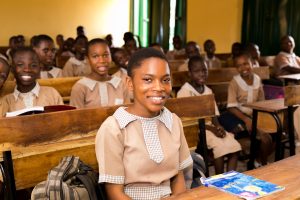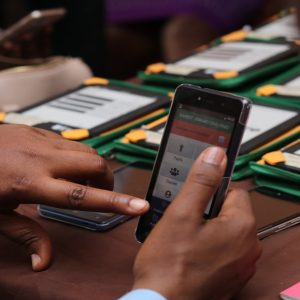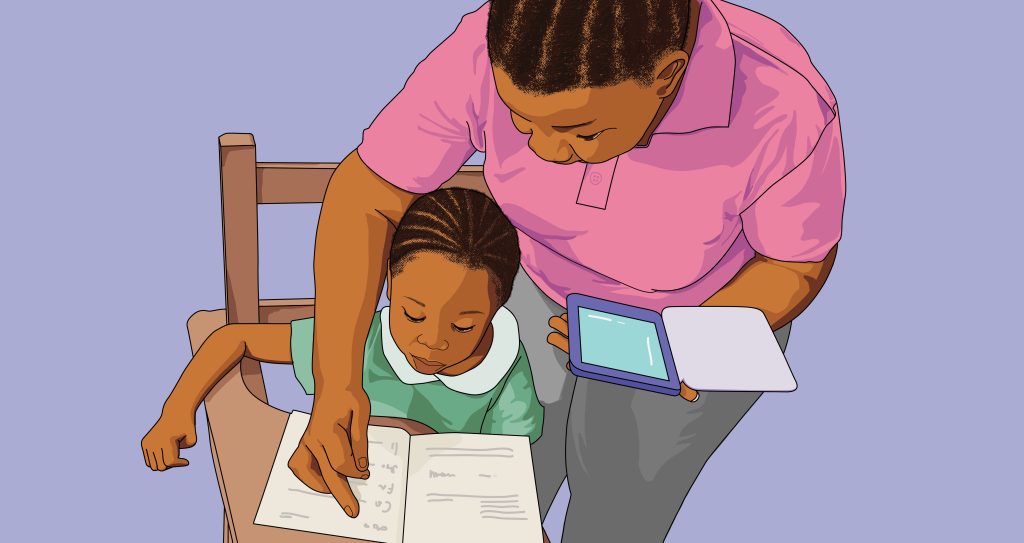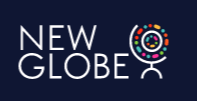This website uses cookies so that we can provide you with the best user experience possible. Cookie information is stored in your browser and performs functions such as recognising you when you return to our website and helping our team to understand which sections of the website you find most interesting and useful.
International Day of the African Child: Empowering the leaders of tomorrow
“The youth of today are the leaders of tomorrow.” Spoken by Nelson Mandela, these words ring true, eluding time and geopolitical context. For Africa, they resonate today more than ever before – because of our historic boom in the population of young people.
This International Day of the African Child, June 16, is arguably the most significant on record. 2023 is set to be the year when Sub-Saharan Africa leads the world as the region with the most young people (0-14) – the size and acceleration of this age cohort are historically unprecedented.
But what does this shift really mean for Africa and the World? The answer to this question will depend on the action or inaction of leaders – to embrace an immense opportunity or let it slip by.
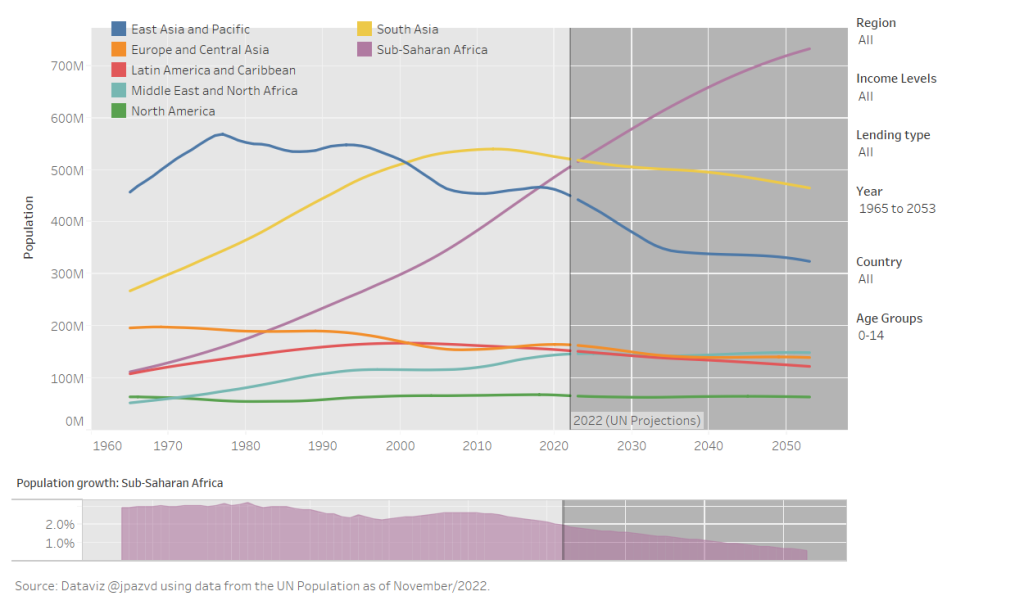
World Bank data showing population growth of young people (0-14) throughout the world
Investing in education is investing in the future, and with Sub-Saharan Africa certainly not lacking potential with its rapidly growing population of young people, prioritizing fruitful education systems is essential.
Unfortunately this can be difficult, and as always barriers get in the way.
It is these education challenges that contribute to Learning Poverty – defined as the percentage of 10-year-olds unable to read a simple sentence – in Sub-Saharan Africa the rate of Learning Poverty is 90%.
The UN’s Sustainable Development Goals (SDGs) are at about the halfway point, the fourth goal, aiming to “ensure inclusive and equitable quality education and promote lifelong learning opportunities for all,” is clearly being missed in many Sub-Saharan African countries, despite considerable investment – highlighting the need for solutions that deliver outcomes.
On the continent there are some leading examples of education programs that go against the trend and transform learning outcomes. NewGlobe supported programs in Africa are delivering a vision and way forward for pupils to learn in a meaningful way.
These programs are successfully building holistic education systems through data-driven pedagogy, innovative learning technologies, and powerful school administration systems.
Education – the bedrock of human capital
In 5-10 years Africa will provide about half of the world’s increase in the working-age population – investing in future generations’ learning will determine the skill set of these world shaping young people.
With the population of Sub-Saharan Africa skyrocketing, so does the demand for essential services like healthcare, infrastructure, and all the elements that create and maintain a prosperous society. Education is the foundation of these services, and will provide a pathway for Africa’s young people to seize career opportunities.
On an economic level, the potential of embracing Africa’s youth population increase through education is clear.
The World Bank estimates that one extra year of education correlates with 10% higher household income, and one extra year on average for a country translates overall to 2.5% higher GDP per capita.
Additionally, a study co-authored by the Yidan Prize winner Professor Eric Hanushek estimates the value of ensuring all students achieve global basic-level skills. In Sub-Saharan Africa 94% of youth do not reach basic skill levels, heavily contributing to global levels, which have been estimated at present value to equate to a lost world economic output of more than $700 trillion over the remaining century – highlighting the alarming opportunity cost of not investing in African human capital.
Civil societal and social cohesion also heavily rest on education.
When a young person lacks confidence in their education system and is unable to embrace learning, they are put at risk. Young people with poor education outcomes tend to have less economic prospects, locking them in a vulnerable position, and increasing their risk of becoming victims of vice, such as human trafficking – something many African governments battle with.
With more and more pupils to educate, it is incumbent on leaders and education stakeholders to strengthen the bedrock that is learning.
Transformation that keeps up with growth
Approximately 27,000 people are born every day in Sub-Saharan Africa, and every new young person’s learning will be reliant on an education system’s ability to adapt. Considering this huge influx of new students into education systems every year, passive solutions will not cut it – governments need bold education transformation at speed and scale.
The World Bank highlights that many current education systems are at capacity, and the demand will increase with nearly 750 million African children expected to be of school age by 2060.
The Rwanda Government’s RwandaEQUIP program is meeting this challenge.
The program, launched at the beginning of 2022, is currently implemented in 250 public and government-aided primary schools, and in 2023 will be rolled out in over 761 schools with a million pupils. The rapid expansion of RwandaEQUIP is impressive, showing what is possible with a commitment to learning outcomes.
At this year’s Education World Forum, Rwanda Minister of Education, Valentine Uwamariya spoke on the program’s transformative power for pupils throughout the country.
“We launched a technology-driven, holistic transformation program called RwandaEQUIP as the last mile solution to build on that and deliver on the promise of equitable learning gains in the country…It rolled out an approach that put research-based digital lesson plans for every lesson, every day in the hands of every teacher, both urban and rural. ”
The RwandaEQUIP program is emboldened by a methodology equipped for speed and scale, whilst prioritizing learning outcomes. Underpinning the program is proven pedagogy independently assessed in Kenya in a study led by Nobel Prize winning economist Professor Michael Kremer. It confirmed learning gains among the “largest ever measured in international education”.
RwandaEQUIP can be a beacon of hope for Sub-Saharan Africa – showing the very real possibility of fast transformation that does not shy away in the face of a huge population increase.
Africa’s greatest asset is its young people. Their potential is exciting and unprecedented, and this International Day of the African Child we must empower them by finally providing an education that achieves learning. Then the children of Africa will be able to deliver success not just for themselves, not just for Africa, but for the whole world.
